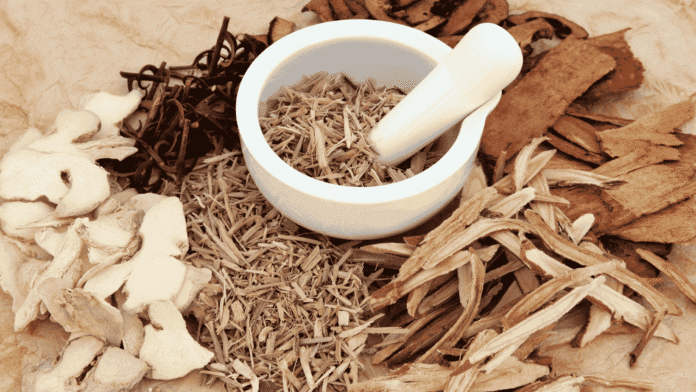In a world dominated by pharmaceutical ads, hospital queues, and imported pills, Nigerians are quietly turning back to something older herbal medicine. And not just the “agbo” from your grandmother’s pot.
Today, herbal remedies in Nigeria are being bottled, packaged, labeled, and sometimes even branded with QR codes. From immune boosters and fertility tonics to skin-clearing soaps and digestive teas, more people are choosing natural over synthetic. Whether it’s because of cost, culture, or a growing awareness of side effects from conventional meds, the movement is loud—even if the remedies are brewed in silence.
This guide explores:
-
Where to buy authentic herbal remedies in Nigeria
-
Trusted vendors, shops, and digital stores
-
Cultural beliefs and modern trends are driving demand
-
How to spot fakes and shop safely
Let’s walk through Nigeria’s growing herbal renaissance.
Why Nigerians Are Returning to Herbal Remedies
There’s an Igbo saying: “Ogwu na-egbu, mana nsi ogwu ka na-egbu” — “Medicine can heal, but misuse can kill.”
While hospitals and modern healthcare still dominate Nigeria’s urban centers, the reality is that many people, both rich and poor, are going herbal. But this isn’t just about tradition. Three key factors are driving the trend:
1. Affordability
Imported meds are pricey. Even common painkillers can cost a student ₦2,000–₦5,000 a month. Herbal alternatives like moringa capsules or ginger teas cost far less, and come in larger quantities.
2. Accessibility
From street stalls to Instagram vendors, herbal remedies are everywhere. And unlike hospitals, they don’t require long queues or referrals.
3. Belief and Culture
Healing rituals, plant-based tonics, and spiritual cleansings are rooted in Nigerian traditions. Whether Yoruba “oogun,” Hausa “magani,” or Igbo “nsi,” these remedies connect people with ancestral knowledge.
What Counts as a Herbal Remedy in Nigeria?
The term “herbal” stretches across a wide range of products and formats:
-
Agbo (local brews) for detox, fever, or general wellness
-
Capsules or tablets made from dried herbs like bitter leaf or turmeric
-
Powders and roots for libido, blood pressure, and diabetes
-
Ointments and soaps for skincare or wound healing
-
Teas made from leaves like lemongrass, guava, or soursop
-
Spiritual tonics used in traditional ceremonies or prayer
Nigerians don’t just take these—they believe in them. And that belief forms a major part of their healing.
Where to Buy Herbal Remedies in Nigeria
Let’s break down the best spots to find trusted herbal remedies across the country, offline and online.
1. Ojota Herbal Market – Lagos
Arguably the biggest and most diverse herbal market in Nigeria, Ojota Herbal Market is the heartbeat of Lagos’ alternative wellness scene. With vendors hawking everything from agbo jedi-jedi to bitter kola concentrates, it’s a bustling, open-air pharmacy of traditional wisdom.
What You’ll Find:
-
Raw herbs and roots
-
Spiritual herbs for protection or cleansing
-
Packed detox kits
-
Yoruba healing teas and powders
Tip: Go with someone who understands the market, or at least a list of what you want. Don’t buy blindly.
🧭 Location: Ojota Motor Park Area, Lagos
🔗 Related: Explore local markets with cultural significance in Lagos
2. Banjoko Herbal Stores – Ibadan
In Ibadan, Banjoko Herbal has gained fame for producing standardized Yoruba herbal solutions, from fertility enhancers to anti-diabetic mixes. With certification from local NAFDAC offices, they’re bridging traditional medicine with modern packaging.
Top Products:
-
Agbo bitters (for liver detox)
-
Herbal menstrual pain relievers
-
Moringa and ginger capsules
🧭 Location: Dugbe Market, Ibadan
🧪 Insider tip: Ask about their sugar-control tonic—it’s a local favorite.
🔗 Internal link opportunity: Where to find organic and local health products in Ibadan
3. Yar Gata Herbal Women Cooperative – Kano
In the North, Hausa traditional medicine is centuries deep. Yar Gata is a women-led cooperative that offers halal-certified, sharia-compliant herbal solutions.
What They Offer:
-
Fertility and libido boosters for men and women
-
Skin remedies using shea and black seed
-
Anti-malaria teas made with neem and lemongrass
🧭 Location: Gwammaja Area, Kano
💬 Testimonial: “Their black seed paste cured my son’s skin irritation when nothing else worked.” — Rakiya, 39, Kano
🔗 Related post idea: Top women-led wellness brands in Nigeria
4. Nature’s Gentle Touch (Retail & Online)
This brand is better known for hair care, but they’ve expanded into herbal wellness, especially for skin and hormonal balance. They sell in retail stores and online.
Best-Sellers:
-
Herbal soaps and body scrubs
-
Aloe-based tonics for digestion
-
Detoxifying teas
🧭 Location: Lagos, Abuja, and online delivery nationwide
📦 Online platform: naturesgentletouch.com
🔗 Related: Herbal skincare and beauty brands in Nigeria
5. Jumia Herbal Section (Verified Sellers)
Don’t underestimate Jumia. Its herbal wellness section has exploded, with products like:
-
Black seed oil
-
Turmeric and cinnamon capsules
-
Men’s herbal boosters
-
Women’s hormonal teas
📱 Digital Buying Tip: Always select the “Jumia Mall” or “Official Store” filter to avoid fakes. Check the review section religiously.
🧭 Access: Nationwide delivery
🔗 Related post: How to safely shop herbal products online in Nigeria
6. Local Traditional Healers (with Caution)
You’ll find them in markets, street corners, and family referrals. While many are trustworthy and deeply knowledgeable, you must be cautious.
What to Watch For:
-
Products without labeling or instructions
-
Vague claims of “curing everything”
-
Pressure to buy large quantities
Always ask about dosage, side effects, and whether the product is safe for your age or condition.
Herbal Trends and Beliefs in Nigeria
The herbal boom isn’t random; it’s cultural, generational, and intentional.
🔹 Agbo for the City
In Lagos, agbo sellers now package their bitters in portable sachets and bottles, perfect for commuters. You’ll hear hawkers calling out “Agbo Jedi for belle pain!” during traffic.
🔹 Black Seed Oil is the New Gold
From fertility boosts to skin tonics, black seed oil (Nigella Sativa) has become a household staple.
🔹 Spiritual Herbalism
Products like “agbo agbara” (for spiritual protection), soaps for “back-to-sender,” and incense for cleansing are still strong in demand, especially in Yoruba and Igbo communities.
🔹 Slimming and Fertility Teas
Influencers and lifestyle coaches are boosting the herbal tea market. Brands now mix local herbs with international wellness concepts like “detox” and “fat burner.”
Herbal Safety Tips
As the market grows, so do risks. Here’s how to stay safe:
-
Check for Certification: Look for NAFDAC approval or local cooperative certification.
-
Avoid Street Concoctions: No label = No guarantee.
-
Research Ingredients: Especially if you’re pregnant or on medication.
-
Buy from Recognized Stores: Not just anyone with a bucket and apron.
Everyday Nigerians on Herbal Healing
“When COVID hit, my mum insisted on ginger and garlic agbo every morning. I didn’t test positive, so maybe it worked.”
— Bolaji, 33, Abuja
“I use bitter leaf powder in my tea for my BP. Been doing that for five years, no issues.”
— Elder Daniel, 58, Akure
“I sell detox teas now on Instagram, soursop and cinnamon mix. My clients swear by it.”
— Ngozi, 29, Port Harcourt
Nature Has Always Been Our First Pharmacy
Before pharmaceuticals, there were roots, barks, leaves, and prayers. Nigeria is rediscovering that wealth, modernizing it, bottling it, and turning it into a billion-naira wellness industry. From Ojota to Jumia, herbal healing is no longer “village medicine, it’s urban, trendy, and powerful.
But whether you buy from a market or a branded store, remember: use with wisdom. Nature heals, but ignorance can harm.




